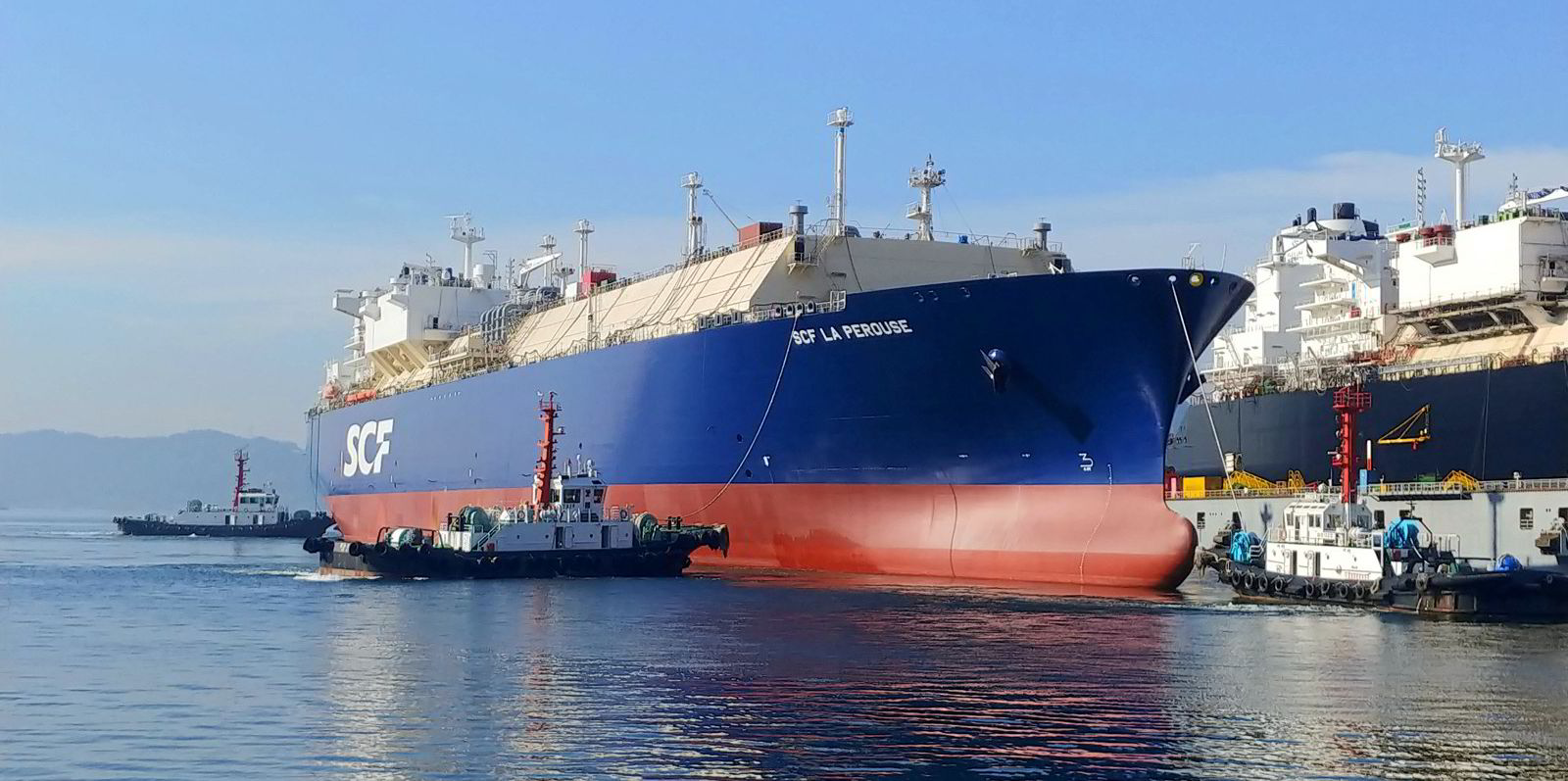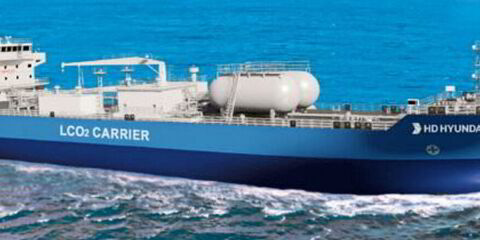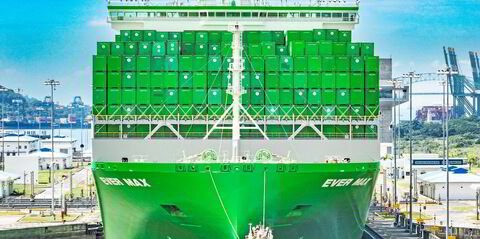When US President Joe Biden announced a ban on the country’s limited Russian energy imports, provisions buried in the measure placed restrictions on Americans’ involvement in Russian energy transport.
But those measures — unlike those targeting Iran — did not make shipping a major target, for now at least.
Transport’s inclusion in the fine print of Biden’s executive order adds to a growing array of sanctions evolving on a seemingly daily basis in Washington’s bid to punish Moscow for Russia’s war on Ukraine.
But while the US has blacklisted five ships tied to Russian state lessor PSB Leasing, imposed restrictions on investment in shipowner Sovcomflot (SCF Group) and banned trade with Russia, sanctions experts say shipping restrictions are on the margins of the sanctions regime imposed on Russia.
“They are different from, say, Iran because they haven’t especially focused on the shipping industry, and until this week had created a carve-out for energy,” Blank Rome sanctions lawyer Matthew Thomas told TradeWinds.
“We’re advising clients to keep closely monitoring the situation, because it’s clearly changing on a day-to-day basis, and everyone needs to pay very close attention to banking issues because these sanctions are focused very heavily on banks and banking.”
In conjunction with Biden’s executive order targeting Russian oil and gas, the Office of Foreign Assets Control (Ofac) — the arm of the US Treasury Department that handles sanctions — said the prohibition on new investment in the energy sector covers transport in several sectors.
Ofac defines the energy sector as including transporting petroleum, natural gas, natural gas liquids, petroleum products or anything else that could be used to make energy, which would impact investments in tankers and gas carriers.
Energy commodities listed
The language also includes coal, wood or even agricultural products used to manufacture biofuels.
The language falls under the recently added item, number 1,019, on Ofac’s “Frequently Asked Questions” on Russia sanctions.

But the ban is limited in scope: it only prohibits new investment in transportation and other energy sector assets. Biden’s order covers contributions of funds to those energy sector investments, including loans and extensions of credit, but providing that finance for maintenance and repair is explicitly allowed.
Other provisions in recent actions by Washington against trade with Russia should also keep shipping on cautious footing.
The US has joined the European Union and the UK in placing restrictions on exports of some equipment to Russia, including navigation and marine equipment. While US officials have threatened to blacklist companies that break such rules, experts said shipping is not typically targeted by such penalties.
“I would think that companies need to be taking stock of what they do vis-a-vis Russia,” said Jonathan Epstein, a lawyer who focuses on trade sanctions at law firm Holland & Knight.
“The rules on Russia are not the rules on Iran, but in the same way, you really want to take a hard look at what you accept that’s bound for Russia. … You want to be asking before taking the cargo.”
For US manufacturers of marine or navigation equipment prohibited under the rules, the impact of the restrictions depends on how they sell their goods.
“If they know they’re shipping to Russia, if they know they have end-users in Russia, then that’s a big issue, because they probably can’t do it,” Epstein said.
“But if they are selling to distributors outside of Russia for inventory, you have to make sure your distributor is taking adequate measures to vet who they’re selling it to.”
Even though sanctions are not as sweeping as those on Iran and other countries, an array of companies from McDonald’s to Shell are pulling out of Russia, and shipping is no exception.
Several liner operators have halted bookings to and from Russia, and tanker owner Frontline is closing out its last charter commitments to lift Russian cargoes, as TradeWinds has reported.
One sanctions expert who has been advising clients in shipping said companies are acting because of corporate social responsibility, or environmental, social and governance (ESG).
Companies are responding to pressure from shareholders, activists and customers.
“People are bonafidely horrified” by the invasion of Ukraine, he said.
Read more
- Class society Lloyd's Register ditches all Russian business
- Russian risk set to idle Lundqvist aframaxes in Black Sea trade
- Abramovich moves superyacht from Barcelona yard as UK imposes sanctions
- Tufton says charters allow it to keep ships out of high-risk areas
- GTT details its €157m order book exposure to Russian contracts





